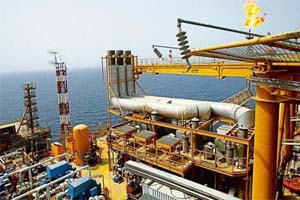
Ban on furnace oil import lifted to meet power demand
The government has formally lifted a ban on import of furnace oil to meet peak electricity demand in the country, including Karachi, and asked at least seven oil companies to make arrangements for its import. The decision was reportedly taken at a meeting of the Cabinet Committee on Energy (CCoE) headed by Planning and Development Minister. The committee had imposed the ban on import of furnace oil in January last year to facilitate local refineries to exhaust their stocks. It was later given a one-time extension in April. According to a notification issued by the petroleum division, the CCoE had allowed the state-run Pakistan State Oil (PSO) to import around 195,000 tonnes of furnace oil. The import was allowed on a summary moved by the petroleum division on the demand of the power division. About 260,000 tonnes of furnace oil was already available in the country as of July 1, 2020. The petroleum division said that under the CCoE decision, the PSO had been allowed import of two firm cargoes and one optional cargo of furnace oil (HSFO) with deficit quantity of up to 65,000 tonnes each on a C&F (cost-and-freight) basis through a gallop tender. It said the committee had also allowed private IPPs (independent power producers) to import furnace oil through the PSO or other OMCs (oil marketing companies) after getting a no-objection certificate (NOC) from the power division, which shall consult with the petroleum division to ensure all local RFO (residual fuel oil) is consumed first keeping in view the demand and supply situation.
|

Pakistan to raise $700 million by regulating satellite services
Pakistan is expected to raise $700 million for the national space programme by regulating satellite services in the country. Sources in the IT and Telecom Division recalled that in 2004 “Paksat Programme - the Way Forward” was unveiled by the Prime Minister’s Secretariat, enshrining parameters for policy frameworks to fill voids in the regulatory and financial aspects. The national space asset utilisation could have generated around $544 million to date. The Strategic Plans Division (SPD) prepared a summary for prime minister’s review in March 2019 to address the voids related to sustainability of the National Space Programme (NSP), which was an all-encompassing programme envisaging developments in the field of space and having direct linkages with the strategic programme. The National Command Authority (NCA), headed by the prime minister, has already approved the NSP. The entire edifice of the space programme is based on reducing reliance on foreign and domestic funding. As such, the revenue-earning satellite services being provided by the Pakistan Space and Upper Atmosphere Research Commission (Suparco) need to be fully utilised. However, this is not happening at present, primarily due to the unregulated domestic satellite market. Currently, the total satellite capacity usage in Pakistan is approximately 2,200MHz, out of which 21% is on Pakistani satellites and the rest is on foreign satellites. In financial terms, a minimum of $35-40 million per year is going out of the country. Countries around the world like India, China and Bangladesh have prohibited the use of foreign satellite systems, thereby granting regulatory and financial protection to their own space programmes.
|
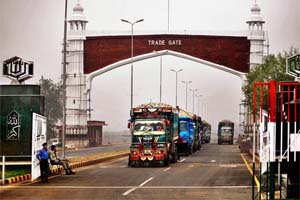
Afghan exports to India via Wagah resume tomorrow
The Foreign Office on Monday said that Afghan exports to India through the Wagah border would resume from July 15. The decision, the FO said, had been taken on Afghanistan’s request for facilitating its transit trade. The trade would be conducted under the Covid-19 protocols. “With this step, Pakistan has fulfilled its commitments under the Pakistan-Afghanistan Transit Trade Agreement (APTTA). Pakistan has restored bilateral trade and Afghan transit trade at all border crossing terminals to pre-Covid-19 status,” the FO said. Under the 2010 bilateral trade agreement between Pakistan and Afghanistan, Afghan exports to India are allowed through the Wagah border. The agreement, however, does not allow Indian exports to Afghanistan through Pakistani territory.
|
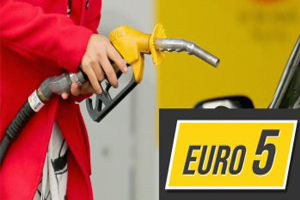
Govt orders all petrol, diesel imports be Euro-V compliant as oil companies protest move
Amid protest and resistance by the oil industry, the government has ordered ban on import of petrol and diesel of less than Euro-V standard with effect from Aug 1, 2020 and Jan 1, 2021 respectively. This has put the oil industry and the authorities in yet another conflict when the two sides were already poles apart on petroleum pricing mechanism and maintenance of 20-day stocks, leading to serious supply disruptions in the recent months. The oil industry has expressed inability to abide by the fresh instructions, particularly because of such a short notice and has warned of Rs7-8 per litre price hike and $200 million annual foreign exchange loss. It said the country’s motor vehicle fleet was also not ready for such a steep switchover. Under the notification issued by the DG Oil, “the process of switching of petrol imports to Euro-V specifications shall be initiated forthwith and imports of petrol below Euro-V specification shall not be allowed to any OMC beyond Aug 1, 2020”. Likewise, it said that “all imports of diesel shall conform to Euro-V specifications with effect from Jan 1, 2021”. In the interim period, efforts shall be made to import Euro-V, however, in case of non-availability under the long-term agreement with Kuwait Petroleum Corporation, diesel of Euro-IV specifications shall be imported. Current mechanism for marketing of diesel and petrol with regard to pricing and freight component shall prevail.
|
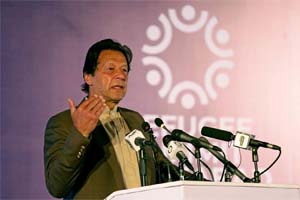
CPEC to be completed at all costs, says Imran
Prime Minister Imran Khan vowed that the government would complete the ambitious China Pakistan Economic Corridor (CPEC) project at any cost and pass its benefits to the nation. “The corridor is a manifestation of Pakistan-China friendship and the government will complete it at any cost and bring its fruit to every Pakistani,” the prime minister said at a meeting held to review progress on the CPEC projects. Terming the CPEC an excellent project for the country’s socio-economic development, Mr Khan said the gigantic multi-faceted initiative would guarantee a bright future for the nation. Lauding the performance of CPEC Authority, the prime minister said measures must be taken to improve its working as well as capacity.
|
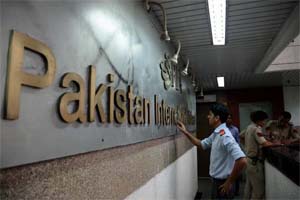
EU safety agency suspends PIA authorisation for six months
After the International Air Transport Association (IATA) expressed concerns over the ‘serious lapse in the licensing and safety oversight by the aviation regulator’, the European Union Air Safety Agency (EASA) on June 30 suspended Pakistan International Airlines’ authorisation to operate to the EU member states for a period of six months effective from July 01, with the right to appeal against the decision. However, later in the day the European Union allowed PIA to operate its flights to the continent till July 3, the airline’s spokesman said. In another move the UN Department of Safety and Security (UNDSS) has removed Pakistani airlines from its ‘Recommended List’, and advised the United Nations staff in Pakistan not to travel on any Pakistan-registered airlines due to the findings from the PIA air crash in Karachi in May 2020. The removal of Pakistani airlines from the recommended list is a provisional action and until further notice, according to a travel advisory issued by the UNDSS Chief Security Adviser to all UN agencies functioning in Pakistan. The UNDSS personnel have been instructed to cease the use of any Pakistan-registered air operators, until the investigation and subsequent review. Each UN Security Management System (UNSMS) is responsible for decision making related to the use of air operators in official travel for their staff. “In light of recent accident information, caution is advised in the use of Pakistan-registered air operators,” the travel advisory says.
|
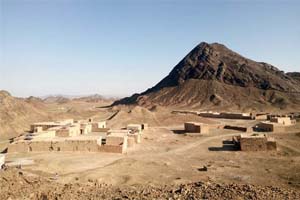
Chinese company allowed exploration in Saindak area
The Balochistan government has allowed Chinese firm Metrological Construction Company of China (MCC) — registered locally with the name of Saindak Metals Limited (SML) — the exploration and development of East Ore Body in Saindak lease area and the company has been issued an NoC for the purpose. Official sources said that the provincial government also extended the contract of MCC/SML for another 15 years under which the company would continue exploration work on East Ore Body site after the expiry of its present contract on Oct 31, 2022. The MCC, working at the Saindak-Gold-cum-Copper Project since 2002, applied the Balochistan Mines and Mineral Department to allow the company to start exploration work on the East Ore Body of Saindak lease area as its exploration work at the present Saindak site had almost finished. Officials said the contract agreement of the SML/MCC was scheduled to expire on Oct 31, 2022, and the Balochistan chief minister approved it for another 15 years. “The extension of MCC-SML contract would ensure investment of $45 million by MCC/SML at their own risk for exploration and development of East Ore Body in Saindak area,” said an official letter sent to the Ministry of Energy, Petroleum Division.
|
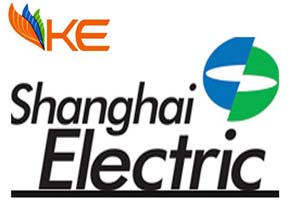
Shanghai Electric renews intention to buy KE
K-Electric announced on June 30 that it had received a fresh public announcement of intention (PAI) from Shanghai Electric Power (SEP) to acquire up to 66.40 per cent voting shares in it, subject to receipt of regulatory and other approvals. “This PAI has been notified to the K-Electric board of directors on June 30,” manager to the offer of the acquirer — stated that they were pleased to submit a fresh PAI by SEP to directly or indirectly acquire up to 18.336 billion shares of KE, representing 66.40pc of the total issued share capital of the company, subject to receipt of requisite regulatory and other approvals. The public offer would be for 4.640bn shares or 16.80pc of the equity. The new announcements are routinely made by the parties on the expiry of the prescribed time period for making public announcement of offer (as extended by the Securities and Exchange Commission of Pakistan) which in this case was up to June 27.
|
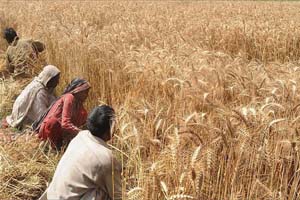
Pakistan faces 1.4m wheat shortfall
Pakistan is facing a shortfall of 1.4 million tons of wheat because of a decrease in yield, a development that is set to aggravate the existing flour crisis in the coming months. The Federal Committee on Agriculture (FCA) was informed about the impending crisis during a meeting held to review the Khareef season. The wheat production target last year was set at 27 million tonnes. This year, there is a shortfall of 1.4 million tonnes and 79.95% procurement target has been achieved. Speaking during the meeting, Federal National Food Security and Research Minister stressed the need to increase wheat production.Food Security Commissioner informed the participants of the meeting that after many years, the country had exceeded the chickpea production target at 540,000 tonnes. “This year, there will be saving of Rs87 million as there will be less chickpea import,” he added.
|

Covid-19 boosts digital economy, e-commerce in Pakistan
Pakistan’s e-commerce and digital economy has received a huge sales boost during the current coronavirus pandemic as physical mobility of shoppers has remained limited. In recent years, the country has made efforts to expand digitisation of its economy by promoting online businesses in a bid to boost exports and create jobs for young people. “We have received an overwhelming response our data shows that online orders have grown nine times [since March],” said by representative of Pakistan’s largest online shopping store. “We are experiencing 100% year-on-year growth in each item and this has increased even further since March 2020 due to the coronavirus.” The State Bank of Pakistan (SBP) claims that the shift to electronic payments would stimulate consumption and trade, helping the country’s economy by as much as 7%, creating 4 million jobs and boosting gross domestic product (GDP) by $36 billion by 2025, the report added. Although the digital industry remains in the infancy stage in Pakistan, a steady rise has been seen in e-commerce transactions as well as in the number of registered e-commerce merchants, it pointed out.
|
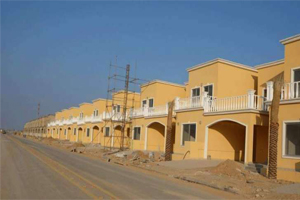
IFC invests $3.2m for low-cost housing in Pakistan
The World Bank has planned to provide a credit line of $500 million to Pakistan for low-cost housing including Prime Minister Imran Khan’s flagship five-million houses project for the low-income people. Besides, the International Finance Corporation (IFC) – a member of the World Bank Group –invested $3.2 million (Rs500 million) in Pakistan Mortgage Refinance Company (PMRC) with the aim of providing financing for low-cost housing in Balochistan and Khyber-Pakhtunkhwa (K-P). The World Bank had planned to establish the credit line of $500 million (around Rs80 billion) in the ongoing year 2020. However, the coronavirus outbreak has delayed the launch of the programme to next year. “The World Bank may now provide the credit line (of $500 million) by June 2021,” PMRC Managing Director and Chief Executive Officer said. On July 9 Prime Minister announced that Naya Pakistan Housing scheme will be given subsidy of Rs 30 billion
|

EV policy draws criticism
The government has finally released the electric vehicle (EV) policy after working on it for over a year, however, the passenger car segment has been completely eliminated from the final draft. This has attracted criticism from prospective players in the EV segment of Pakistan. This is a very unnatural move that Pakistan is introducing the policy for the entire auto sector, except for passenger cars, which had demanded the introduction of EVs in the first place, said by an expert. He was of the view that the existing Japanese carmakers were behind the delay in finalisation of the policy because they were eager to inject hybrid cars into the EV domain, which was a novel idea because no other country had made such a move.He pointed out that countries like China and the US, which were EV pioneers, did not include hybrid vehicles in the electric car segment, hence, Pakistan should also refrain from doing so because it was following their models.
|

Investors eye Pakistan’s health start-up
The pandemic has brought healthcare sector to the fore in countries across the world and Pakistan’s health sector is no different. The coronavirus has exposed strengths and weaknesses in the system, which has caught the attention of angel investors. Since the lockdown was imposed, online businesses enhanced their mark and the country’s health system witnessed a similar trend as well where a few large scale pharmacies initiated home delivery services and doctors set up e-clinics. The trend of digitisation caught attention of a UK-based digital technology company, which recently invested in Pakistan’s health-tech ecosystem through a locally indigenous start-up. Pakistan’s tech industry grow by leaps and bounds, with the government focused on taking it to another level, the chance to invest in it during this time is an opportunity, which should not be missed. The recent pandemic has exposed vulnerabilities of healthcare systems around the globe, however, Pakistan is among the few countries that have performed relatively better. This shows that the country has the potential to rival some of the health care systems around the world, provided that a robust system is created for healthcare workers to flourish.
|
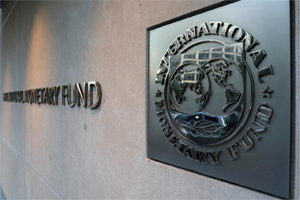
IMF warns of aggravated regional slowdown
In a report covering the Middle East, North Africa, Afghanistan and Pakistan (Menap) region, the International Monetary Fund (IMF) on Monday downgraded its growth forecasts even further from April, the last time such forecasts were issued at the outset of the Covid-19 challenge. Pakistan’s growth forecast remain unchanged from April, but interest rate stimulus is largest in the region. For oil importing countries in the Menap region, including Egypt and Pakistan, the report says “the benefits from lower oil prices are mostly being offset by hampered trade, tourism, and remittances and tighter global financial conditions and spillovers on domestic credit conditions, which, along with confinement measures, continue to depress growth.” Pakistan is in the group whose growth forecasts have not been changed from what their respective authorities have already notified, a downgrade of one percentage point. Pakistan and Egypt have undertaken the largest interest rate cuts out of all the countries in the region. “Pakistan stand out with cuts of 525 basis points” the report notes. Pakistan is also among the countries in the group that have allowed their exchange rate to operate as a shock absorber, despite some interventions, the report notes.
|

Tax-to-GDP slips to 9.5pc despite marathon reforms
Pakistan’s tax-to-GDP ratio has slipped to 9.5 percent in the last fiscal year of 2019/20 from 9.9 percent a year earlier, indicating the government is yet to find means to take it back to double digit despite an array of reforms and management reshuffling in the last two years, official data showed released on July 13 Monday. This is the second straight year when the tax-to-GDP ratio witnessed contraction despite reform program initiated by the present government to broaden the tax base and enhance the revenue collection. Tax-to-GDP ratio by end of fiscal year 2017/18 was 11.1 percent. The ratio remained in double digit during fiscal years 2015/16, 2016/17 and 2017/18. The ratio calculated on the basis of the revenue collection by the Federal Board of Revenue (FBR) during the period under review. Pakistan is amongst the economies for having lower tax to GDP ratio. For the past several years, the respective governments initiated many reform programs to bring more people into the tax net and enhance the revenue collection.
|
|

© 2020 Alpine Marine Services Private Limited
all rights reserved
|
|
|